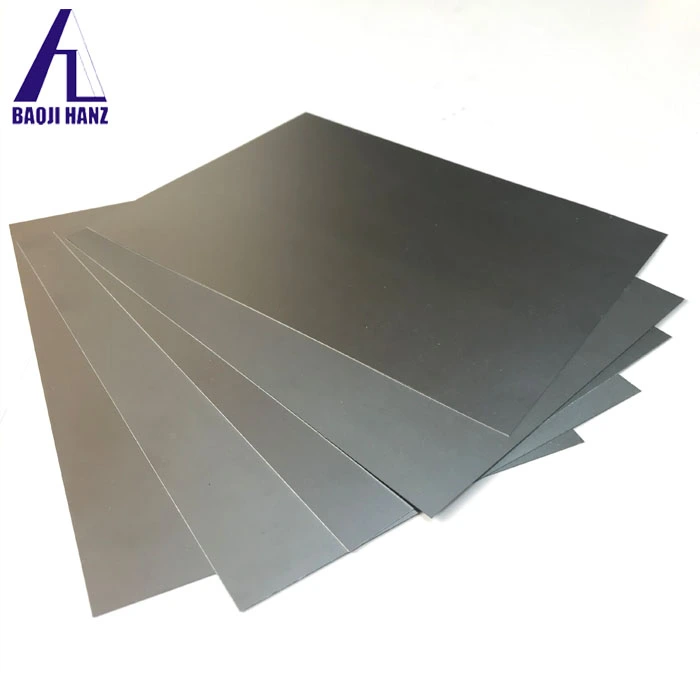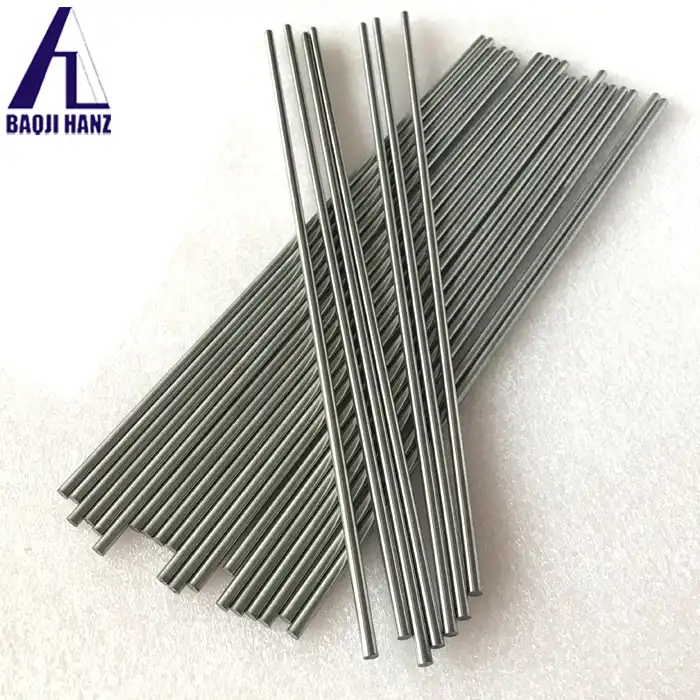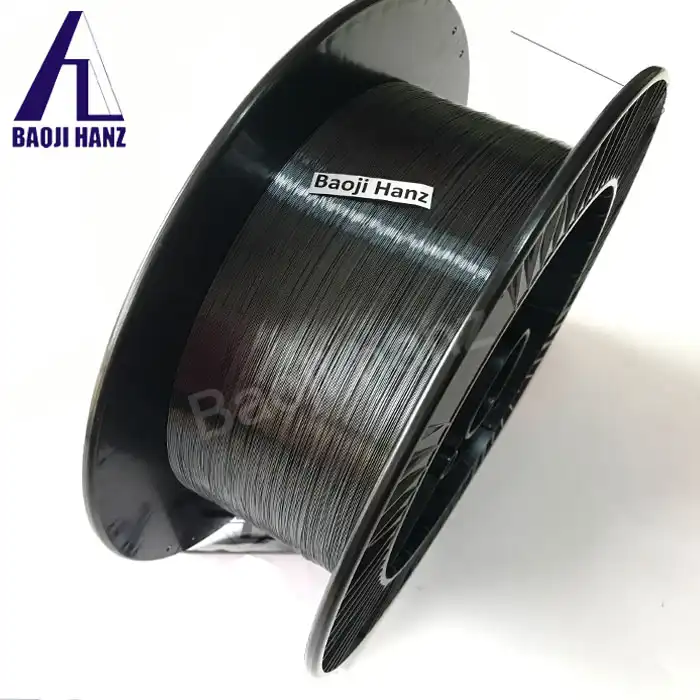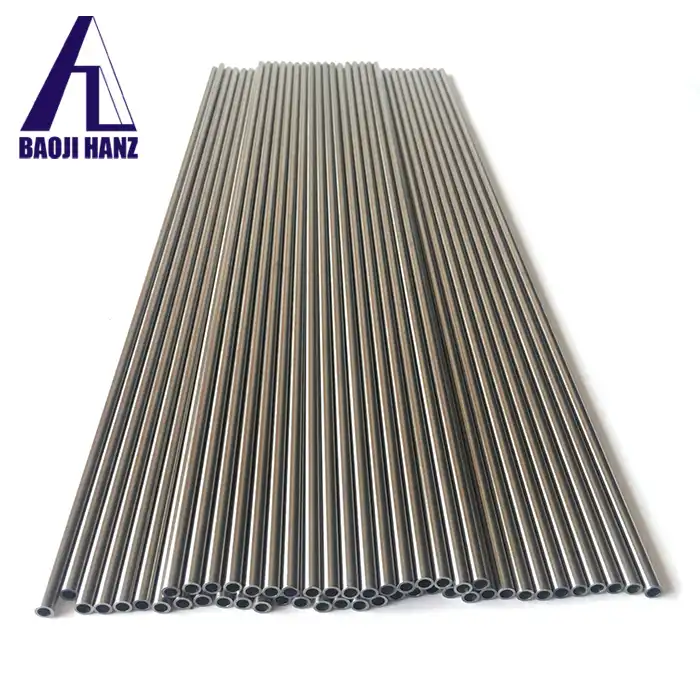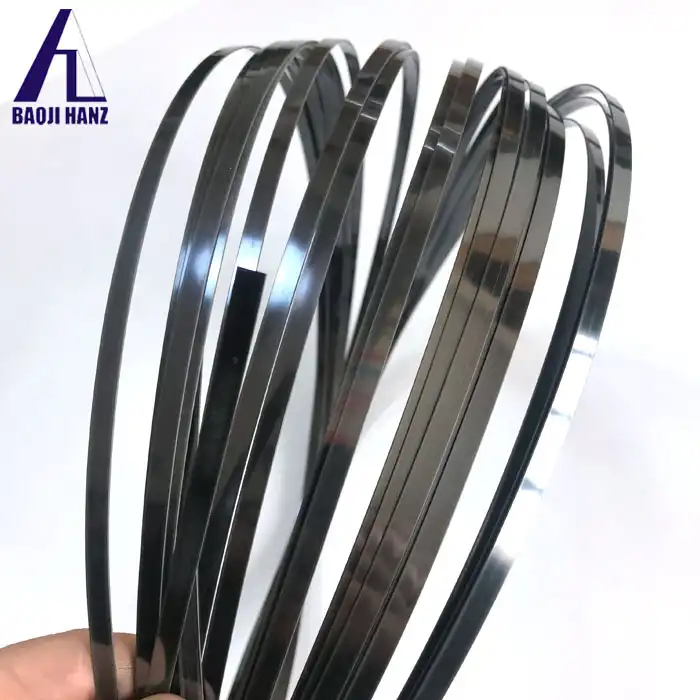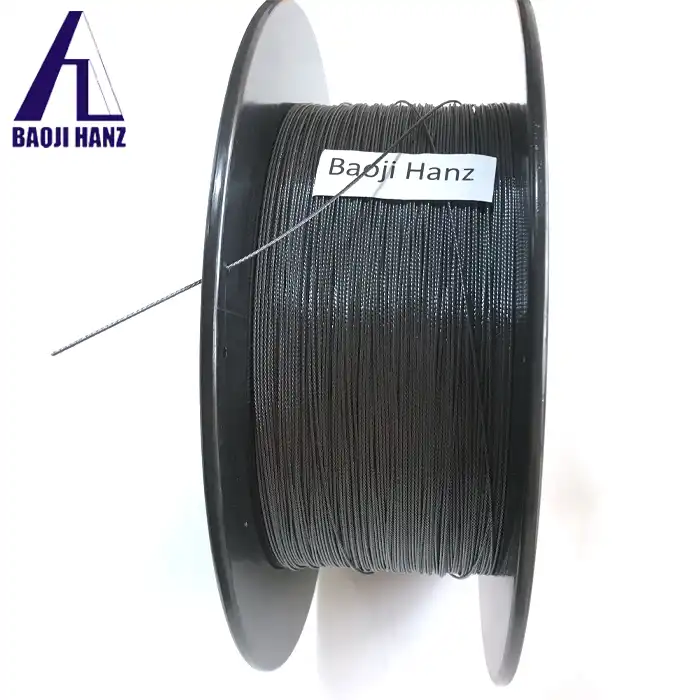What Makes Nitinol Memory Alloy Capillary Tubes the Perfect Fit for Your Flexible Catheter Designs?
2025-03-28 18:47:36
In the ever-evolving landscape of medical device engineering, the quest for materials that combine flexibility, durability, and biocompatibility remains paramount for innovative catheter designs. Nitinol memory alloy capillary tubes have emerged as a revolutionary solution that addresses these challenges with remarkable efficiency. These specialized tubes, composed of nickel-titanium alloy, offer unique shape memory properties and superelastic characteristics that make them ideally suited for navigating the complex pathways of the human vascular system. The exceptional combination of mechanical resilience, thermal responsiveness, and biocompatibility positions nitinol memory alloy capillary tubes as the material of choice for engineers seeking to enhance the performance and safety of modern flexible catheter systems.
Superior Material Properties That Transform Catheter Performance
Unprecedented Shape Memory Capabilities
Nitinol memory alloy capillary tubes exhibit remarkable shape memory properties that revolutionize catheter design possibilities. When exposed to specific temperature changes, these tubes can "remember" and return to their predetermined shape with astonishing precision. This unique characteristic allows catheters to navigate through tortuous vascular pathways with minimal trauma to surrounding tissues. The material composition of these tubes, primarily nickel and titanium in carefully controlled proportions, enables this phenomenon through a crystalline phase transformation. At Baoji Hanz Metal Material Co., Ltd., our advanced metallurgical technology ensures precise control of this composition and microstructure, resulting in consistent quality across all our nitinol memory alloy capillary tubes. This consistency is crucial for medical applications where predictable behavior can mean the difference between successful and failed procedures. The shape memory effect also allows for innovative designs that can transform from a straight insertion configuration to complex functional shapes once deployed at the target site, opening new possibilities for minimally invasive procedures that were previously unattainable with conventional materials.
Exceptional Superelastic Performance
The superelasticity of nitinol memory alloy capillary tubes represents another critical advantage for flexible catheter designs. This property allows the tubes to undergo substantial deformation—up to 10 times more than standard stainless steel—and return to their original shape without permanent deformation once the stress is removed. This characteristic is particularly valuable for catheters that must navigate through complex anatomical structures while maintaining structural integrity. Our nitinol memory alloy capillary tubes exhibit superior fatigue resistance, capable of withstanding thousands of loading cycles without degradation, ensuring long-lasting performance in critical applications. This exceptional elasticity translates to catheters that can be maneuvered through tight bends and constrictions with significantly reduced risk of kinking or permanent deformation. The material's ability to distribute stress evenly throughout its structure prevents localized weak points that could lead to failure. Additionally, this superelasticity contributes to improved tactile feedback for physicians during catheter insertion and manipulation, enhancing procedural precision and control in delicate vascular interventions where millimeters can matter significantly.
Unmatched Biocompatibility and Corrosion Resistance
The biocompatibility of nitinol memory alloy capillary tubes makes them exceptionally well-suited for intravascular applications. These tubes form a stable titanium oxide layer on their surface, creating a protective barrier that prevents nickel leaching and minimizes potential allergic reactions. This inherent biocompatibility reduces the risk of adverse tissue responses during extended implantation periods. Furthermore, nitinol memory alloy capillary tubes demonstrate outstanding corrosion resistance, particularly in saline environments like bodily fluids. At Baoji Hanz Metal Material Co., Ltd., our nitinol products undergo rigorous testing to ensure they meet stringent ISO 13485:2016 medical device standards and EU CE certification requirements. This corrosion resistance is crucial for catheters that may remain in the body for extended periods, as it prevents degradation that could lead to material failure or the release of potentially harmful particles. The combination of biocompatibility and corrosion resistance contributes significantly to patient safety and device longevity, making nitinol memory alloy capillary tubes the material of choice for advanced catheter systems where reliability cannot be compromised.
Design Innovations Enabled by Nitinol Capillary Technology
Revolutionary Miniaturization Capabilities
Nitinol memory alloy capillary tubes have enabled unprecedented miniaturization in catheter design, opening new frontiers in minimally invasive procedures. With customizable dimensions and the ability to maintain functionality at extremely small diameters, these tubes allow for access to previously unreachable vascular territories. Our manufacturing processes at Baoji Hanz Metal Material Co., Ltd. can produce nitinol memory alloy capillary tubes with precise tolerances down to micro-dimensions while preserving their essential mechanical properties. This miniaturization capability directly translates to less invasive procedures, reduced recovery times, and access to delicate anatomical structures like peripheral vasculature and neurovascular pathways. The reduced profile of nitinol-based catheters also allows for better blood flow around the device during procedures, minimizing the risk of thrombus formation and related complications. Additionally, these smaller-diameter catheters require smaller access points, reducing patient trauma and the risk of access site complications. The combination of miniaturization with maintained functionality represents a significant advancement in catheter technology, enabling procedures that target specific tissues with greater precision while minimizing collateral damage to surrounding structures—a critical consideration in sensitive areas such as the brain or heart.
Enhanced Navigational Control
The unique material properties of nitinol memory alloy capillary tubes significantly enhance the navigational capabilities of modern catheters. The thermal properties of these tubes allow them to function optimally across a range of body temperatures while maintaining their critical memory properties, ensuring consistent performance regardless of the procedural environment. Their exceptional flexibility enables smooth navigation through tortuous vascular pathways that would challenge or defeat conventional materials. At Baoji Hanz Metal Material Co., Ltd., we've perfected the manufacturing process to ensure our nitinol memory alloy capillary tubes deliver precise control during catheter navigation, with consistent performance from batch to batch. This enhanced control translates to reduced procedure times and decreased radiation exposure for both patients and medical professionals during fluoroscopy-guided interventions. The tubes' ability to transmit torque effectively along their length—even when navigating complex bends—provides physicians with improved directional control and positioning accuracy. Furthermore, the unique combination of flexibility and column strength helps prevent catheter prolapse or unwanted movement during critical stages of procedures, maintaining stability where precisely needed while allowing flexibility where required for navigation.
Customizable Response Characteristics
One of the most valuable aspects of nitinol memory alloy capillary tubes is the ability to tailor their mechanical response to specific clinical applications. Through precise adjustments in the nickel-titanium ratio and specialized thermomechanical processing techniques, our engineers at Baoji Hanz Metal Material Co., Ltd. can customize the transformation temperatures and mechanical properties of these tubes to match exact clinical requirements. This customization capability enables the development of catheters with region-specific flexibility—more rigid at the proximal end for pushability and increasingly flexible toward the distal tip for atraumatic navigation. Our OEM services allow for customized solutions tailored to specific requirements, whether it's specific alloy compositions, unique sizes, or special processing treatments. The transformation temperature can be precisely engineered to activate shape changes at predetermined temperatures, enabling smart catheters that respond to their environment in controlled, predictable ways. Additionally, variable wall thickness can be incorporated into a single catheter design, optimizing the balance between structural integrity and flexibility along different sections. This level of customization makes nitinol memory alloy capillary tubes ideal for specialized applications in neurovascular interventions, complex cardiac procedures, and other challenging vascular territories where standard approaches may prove insufficient.
Clinical Applications Transforming Patient Care
Advanced Endovascular Procedures
Nitinol memory alloy capillary tubes have revolutionized endovascular procedures by enabling more effective treatment of complex vascular conditions. Their unique combination of flexibility and structural integrity makes them ideal for catheters used in aneurysm coiling, embolization procedures, and thrombectomy devices. The material's superelasticity allows these catheters to navigate through highly tortuous cerebral vasculature while maintaining lumen patency and excellent torque transmission. At Baoji Hanz Metal Material Co., Ltd., our nitinol memory alloy capillary tubes undergo rigorous quality control to ensure they meet the demanding requirements of these critical procedures. The tubes' excellent kink resistance prevents catheter failure during navigation through complex vascular anatomies, reducing procedure abandonment rates and improving clinical outcomes. Their ability to maintain a predetermined shape once positioned helps physicians achieve stable catheter placement during critical stages of interventions, particularly important during the deployment of embolic materials or retrieval devices. Additionally, the material's excellent fatigue resistance ensures reliable performance throughout extended procedures, maintaining consistent behavior even after multiple passes through challenging vascular segments. This reliability directly translates to improved procedural success rates and reduced complications in high-risk interventions that target critical structures like cerebral vessels or coronary arteries.
Transformative Cardiac Catheterization
Cardiac catheterization procedures have been significantly enhanced through the integration of nitinol memory alloy capillary tubes. These materials enable the creation of coronary diagnostic and interventional catheters with superior navigation capabilities through complex cardiac anatomy. The exceptional flexibility and shape memory properties of nitinol allow these catheters to adapt to individual patient anatomy while maintaining sufficient support for device delivery. Our nitinol memory alloy capillary tubes manufactured at Baoji Hanz Metal Material Co., Ltd. provide the perfect balance of pushability, trackability, and torque response needed for challenging cardiac interventions. Their consistent performance across varying temperature conditions ensures reliable behavior during prolonged cardiac procedures. The material's unique ability to resist permanent deformation after repeated bending makes these catheters especially valuable for accessing challenging coronary lesions that require multiple positioning attempts. Additionally, the excellent fatigue resistance of nitinol memory alloy capillary tubes prevents material failure during procedures that require extended manipulation, such as chronic total occlusion interventions or complex structural heart procedures. The combination of these properties has enabled the development of specialized catheters for transcatheter valve replacements, septal defect closures, and other structural heart interventions that would be challenging or impossible with conventional materials, opening new treatment options for patients with previously untreatable cardiac conditions.
Peripheral and Specialty Interventions
Nitinol memory alloy capillary tubes have expanded the possibilities for peripheral vascular interventions and specialty applications requiring unique catheter properties. Their combination of flexibility, kink resistance, and pushability makes them ideal for navigating through challenging peripheral vasculature, including highly calcified vessels and areas with severe tortuosity. Procedures targeting the renal, mesenteric, and lower extremity vessels have particularly benefited from catheters utilizing nitinol memory alloy capillary tubes. At Baoji Hanz Metal Material Co., Ltd., we offer customizable dimensions and lengths to meet the specific requirements of these diverse applications, with our ISO 9001:2015 certification ensuring consistent quality across all products. The material's excellent shape retention properties enable stable positioning during critical steps of peripheral interventions, such as stent deployment or atherectomy procedures. Their resistance to crushing forces makes them valuable for maintaining catheter patency when crossing tight stenoses or calcified lesions. Additionally, the superelasticity of nitinol memory alloy capillary tubes allows for the development of specialty catheters with unique shapes designed for specific anatomical challenges, such as sharply angled vessel takeoffs or bifurcations. This versatility has enabled the creation of purpose-designed catheters for diverse applications ranging from dialysis access interventions to complex biliary procedures, expanding the reach of minimally invasive techniques to previously challenging clinical scenarios.
Conclusion
Nitinol memory alloy capillary tubes represent the pinnacle of material innovation for flexible catheter designs, offering unparalleled combinations of shape memory, superelasticity, biocompatibility, and customizability. These remarkable properties enable groundbreaking advances in minimally invasive procedures across multiple medical specialties, ultimately translating to improved patient outcomes, reduced procedural complications, and expanded treatment options for complex conditions.
Are you ready to elevate your catheter designs with the exceptional properties of nitinol memory alloy capillary tubes? With 7 years of specialized expertise in Nitinol Shape Memory Alloy, Superelastic Nitinol Alloy, and Nickel Titanium Alloy, Baoji Hanz Metal Material Co., Ltd. offers unmatched quality and innovation. Take advantage of our direct supply chain for significant cost savings and benefit from our extensive inventory for rapid delivery of standard sizes. Our expert team provides comprehensive OEM services to create custom solutions precisely tailored to your unique requirements. Contact us today at baojihanz-niti@hanztech.cn to discover how our nitinol solutions can transform your next catheter design project!
Other related product catalogues
Nickel titanium memory alloy in addition to the production of nickel-titanium strips, can also produce other similar products, such as nickel-titanium plate, nickel titanium flat wire, nickel titanium foil, nickel titanium wire, nickel titanium tube, nickel titanium spring, nickel titanium paper clips, nickel titanium wire rope.
|
|
|
|
|
|
|
|
References
1. Morgan NB. Medical shape memory alloy applications—the market and its products. Materials Science and Engineering: A. 2004;378(1-2):16-23.
2. Stoeckel D, Pelton A, Duerig T. Self-expanding nitinol stents: material and design considerations. European Radiology. 2004;14(2):292-301.
3. Chen M, Zhang Y, Huang B. Manufacturing technology of nitinol capillary tubes for minimally invasive medical devices. Journal of Materials Processing Technology. 2018;255:343-349.
4. Petrini L, Migliavacca F. Biomedical Applications of Shape Memory Alloys. Journal of Metallurgy. 2011;2011:1-15.
5. Henderson E, Nash DH, Dempster WM. On the experimental testing of fine nitinol wires for medical devices. Journal of the Mechanical Behavior of Biomedical Materials. 2011;4(3):261-268.
6. Tofail SAM, Butler J, Gandhi AA, et al. Recent advances in Nitinol applications in medical devices. Expert Review of Medical Devices. 2020;17(8):781-797.

